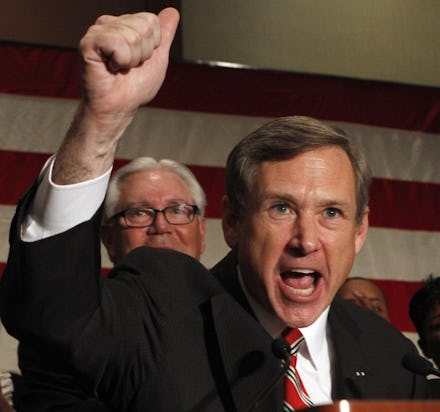How to Reach a Nuclear Deal With Iran: Silence the Hardliners

The recent talks held in Geneva between representatives from the P5+1 and the Iranian foreign minister, Javad Zarif, were highly successful. A senior Obama administration official said, “I’ve been doing this now for about two years, and I have never had such intense, detailed, straightforward, candid conversations with the Iranian delegation before.” It is hard to understate just how significant this development is. Six months ago, as tensions between Iran and the global community reached their zenith, war seemed almost inevitable.
While there is much room for optimism that a negotiated agreement will be reached, hardliners in Israel and the U.S. threaten to sabotage this. By playing domestic politics and resorting to fear mongering, right wing politicians can seriously undermine Rouhani’s tenuous political position in Iran. As opportunities for engagement with Iran are rare and fleeting, it is essential that these hardliners tone down their rhetoric and allow for cautious engagement with Iran to proceed.
Rouhani is a distinguished cleric and was a close associate of the founder of the Islamic Republic, Ayatollah Khomeini, but he is not a part of the political faction that usually dominates Iranian politics. Unlike the hardline Revolutionary Guard and Ayatollah Khamenei, he is part of a pragmatic coalition that seeks to minimize ideology in Iran’s foreign policy decision-making. This group’s political initiatives have usually been outmaneuvered by hardliners, who seek to maintain ideological purity.
Sanctions have undercut the primacy of hardliners. In 2012, Iran’s GDP shrunk 1.9% and the average Iranian is feeling the weight of this economic downturn. In the most recent election, Iranians voiced this sentiment by embracing Rouhani. While this was a political blow to hardliners, even Khamenei tentatively gave his blessing to the election. As he explained later that “heroic flexibility” with the West was needed to end the heavy burden of sanctions.
Despite this electoral mandate, Rouhani’s window for success is small. If he fails to produce results quickly, hardliners will openly rise against him, claiming that the “great Satan” has again proven itself unreliable. Tellingly, when Rouhani returned to Iran after his conciliatory speech at the UN and historic conversation with President Obama, he was pegged with eggs and shoes by hardline protesters. More importantly, the head of the revolutionary guard publicly criticized him for speaking with Obama.
Many members of the U.S. Congress fail to recognize this delicate situation. Preceding the P5+1 talks, several members of Congress, including prominent members such as Robert Menendez and John McCain, signed a letter claiming Iran was a “credible military threat.” In a similar action, a group of Senators pushed for harsher sanctions on Iran. Separately, Mark Kirk, a republican Senator from Illinois went so far as to publish an op-ed that likened negotiated concessions to Iran with the appeasement of Hitler by Neville Chamberlain.
Equally inflammatory are hardliners from Israel, primarily Prime Minister Benjamin Netanyahu, who argues that Rouhani is a “wolf in sheep’s clothing” and that his “charm offensive” is a ploy to buy more time for its nuclear program. As the talks in Geneva were set to begin, Netanyahu is quoted as saying that, “Iran is now on the ropes, and it is possible to employ sanctions at their fullest in order to achieve the desired result.” More concretely, Jerusalem has also urged the U.S. not to permanently end sanctions of Iran.
Such rhetoric and posturing from American and Israeli hardliners may score political points, but they are unconstructive. Rather than encouraging Iran to continue to engage, it puts Rouhani in a position where he must himself resort to hardline rhetoric, to defend his right flank. This will obviously come at the cost of negotiations, which are so often determined by tone. If hardline leaders in the U.S. and Iran take their actions further and attempt to stall or derail the talks, they will be effective. Rouhani simply cannot hold his Iranian opponents at bay if he is forced to contend with powerful western leaders that try to undermine his progress.
Given this, it is essential for Obama to try to use his remaining influence to curtail these hardliners. Even with a Congress that did not feel such animosity towards the president and cooperative Israeli prime minister, this would be a huge challenge.
However, such an effort would be well worth the president’s efforts. With the negotiations, Obama has the opportunity to end the high level of tensions that have enveloped Iran and the West over the past few years and possibly avoid another disastrous military engagement.
As negotiations continue in November, there is a real opportunity for a deal and cautious engagement is a bet worth taking. Compromises will have to be made, but these will prove worthwhile. The current status quo is simply too dangerous to persist.